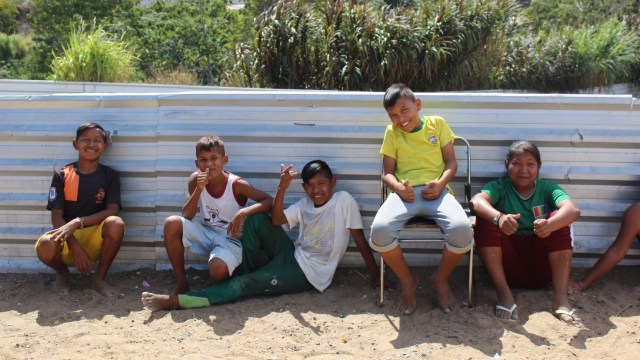
For the past four years, Operation Shelter, under the command of the Brazilian Ministry of Defense, has been welcoming Venezuelan refugees from the ongoing humanitarian crisis in Venezuela and promoting their relocation. According to United Nations agencies, more than 5 million Venezuelans have left their country, with Brazil being their fifth destination. The Brazilian government reported that by end of 2021, Operation Shelter had regularized the status of more than 287,000 Venezuelan refugees.
By Diálogo – Digital Military Magazine – Carlos Kwasinsk
Feb 18, 2022
About to begin its 13th phase, the operation has already had the support of more than 7,000 military personnel in its previous phases. The Northeast Military Command (CMNE, in Portuguese), currently under the command of Brazilian Army General Richard Fernández Nunes, is preparing the new contingent. According to the CMNE, the contingent will consist of about 500 military personnel from the Army, Navy, and Air Force, with some 300 military personnel from Brazil’s northeastern states and another 200 from the Northern Military Command. According to the Federal Police, more than 610,000 Venezuelans entered the country and 260,000 requested legal status regularization to seek opportunities and better living conditions, between 2017 and June 2021.
The numbers are significant. Structured around three lines of efforts (border planning, shelter for immigrants, and internal relocation), the operation currently has 14 shelters distributed in the cities of Boa Vista and Pacaraima, Roraima state, which serve about 7,000 refugees and migrants.
Internal relocation: the Brazilian government’s main strategy
To reduce the pressure on public services in the two cities, the internal relocation of refugees has become the main strategy of the Brazilian government to manage the humanitarian crisis that persists in its northern border. Since 2018, border planning activities have allowed the regularization of more than 280,000 Venezuelans in Brazil and of these, at least 65,000 have been internally relocated to 700 Brazilian cities. The expectation for this upcoming phase is for an increase in the demand for services due to border closures both countries had imposed as a result of COVID-19.
Besides the important numbers, the humanitarian aspect also stands out. Even for experienced military personnel – some of whom are veterans of peacekeeping operations in Haiti, Lebanon, or the Central African Republic — working with the population of a neighboring country beset by famine can be quite moving.
“An indigenous family, with nine children, arrived at the border with only three children. Three died on the way from measles and three others perished because they had nothing to eat. And they arrived here begging for food. And that’s the image that will stay with me, seeing the children surrounding my colleague, pulling on his clothes and striking the palm of their hands for food. It is the most difficult, the most shocking of all,” said a medical officer of the Brazilian Air Force who asked not to be named.
The concern with the pandemic is another factor present in the operation. In order to take part in internal relocation, the Venezuelans who are welcomed must be vaccinated. In addition, municipal and state health networks conduct vaccination campaigns, under the National Immunization Program of the Health Ministry (PNI, in Portuguese) with 13 other types of vaccines. In January, the Reception Health Center held a vaccination campaign in the shelters for children 5 to 11, 12 to 17, and adults.
International agencies
Operation Shelter works in partnership and has the support of international agencies, such as the United Nations High Commissioner for Refugees (UNHCR), Fraternity Without Borders, and the Association of Volunteers in International Service (AVSI), among other nongovernmental organizations. “Everything changed, from water to wine, in 2018, when the humanitarian response was federalized and the Humanitarian Task Force was created. There was, until then, no coordinated and organized response that brought together all the different organizations that were trying to do some work with that refugee and migrant population,” says Rafael Levy, UNHCR field officer.
Federico Martínez, UNHCR deputy representative in Brazil, recognized the pioneering role of the Brazilian Armed Forces in providing emergency assistance to refugees and migrants. “UNHCR recognizes that the role of the Brazilian Armed Forces in the humanitarian response for Venezuelans has been exemplary and very effective, contributing to the direct provision of assistance and basic services, and with the cooperation of U.N. agencies and other partners.”
…
Read More: Diálogo – Digital Military Magazine – Humanitarian Crisis in Venezuela Persists, Operation Shelter Enters Its 4th year
…

